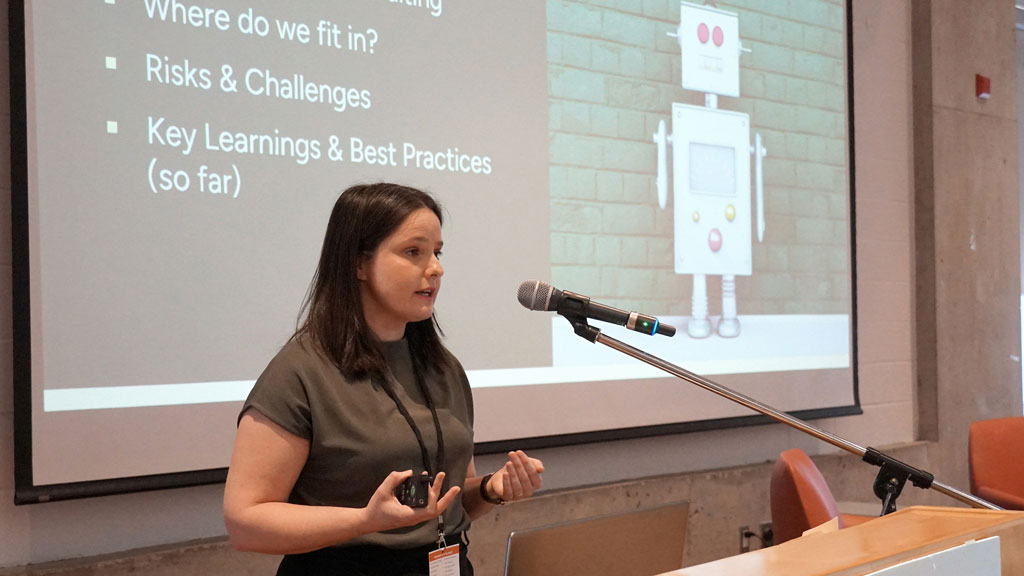AI can play “a critical role” in cutting timelines to convert brownfields to residential communities in Toronto where pressures mount to find solutions to a growing housing crisis.
That’s the message from Kathryn Matheson, team lead at SLR Consulting (Canada) Limited, a seminar panellist at the Canadian Brownfields Network Conference held recently at Toronto Metropolitan University.
“It is an exciting time to have new tools” in the field, she said.
Big technology companies are providing software companies access to their large language models “so now we have small startups which create industry-specific software,” she told a packed room at the seminar focused on transitional issues and solutions to brownfield restoration.
Matheson said it opens up opportunities even for environmental professionals with no software savvy to create their own AI assistants.
“Imagine if you had an AI assistant who had access to all of the provincial and municipal permitting and regulatory requirements and how much time that would save you.
“We don’t need to be experts but we do need to have sufficient technological literacy to be able to ask questions about the data that is used…to support our interpretation of the results,” she added.
From a recent series of interviews with environmental professionals, Matheson found AI tools are quickly being adopted throughout the industry.
“In some cases, those who have software capabilities were trying to create open source tools on their own,” she said.
Matheson told the room it is incumbent on industry professionals to adopt these tools “and do it in a responsible way.”
She said human interaction is integral to the development of AI models. In a mechanism called Human in the Loop (HITL), the most powerful AI programs are set so humans and machines interact on a continuous basis.
“This is done to improve outcomes, particularly for tasks that involve nuance or complex decision-making or ethical considerations.”
At a recent workshop in Vancouver AI experts discussed the importance of responsible AI development.
Best practices in areas such as bias communication, transparency and ethical codes of conduct are critical when collecting data from people, Matheson said.
“We need to ask questions about what kind of data the model has been trained on, what kind of biases are in the data.”
Matheson told delegates consultation with legal professionals is critical.
“Standard of care is going to be a huge conversation with AI,” she stated.
She doesn’t see AI being groomed to take away jobs.
“At the end of the day this is just an advanced tool so the environmental professional is always going to be needed.”
She said the world-renowned Vector Institute for Artificial Intelligence in Toronto is a starting point for companies looking to educate themselves on the subject.
Panellist Magdalena Krol, associate professor of the civil engineering department at York University, said because of the high costs of soil remediation, using sustainable methods for heating and cooling can be a key to a development’s financial success.
As an example, she said using district energy heating and cooling in which energy is generated in one place and transported through underground piping to various buildings is one strategy to developers might consider. Another is ground source heating and cooling.
The seminar included a presentation by an Imperial Oil executive on the status of the company’s 950 or so downstream properties that include former refining, service stations and bulk plants that the oil company is divesting.
Maurice LeBlanc, commercial portfolio manager of environmental and property solutions, Imperial, said two options to sell-off some of its properties are either to simply remediate and then sell or to sell as-is in an unremediated state.
He said a third option is to sell low risk sites under a risk management plan as commercially viable properties.
About 65 per cent of Imperial Oil’s properties are in Western Canada. Most are in rural locations with less than 10,000 residents, said the panellist.




Recent Comments
comments for this post are closed